The Inside-Out Approach
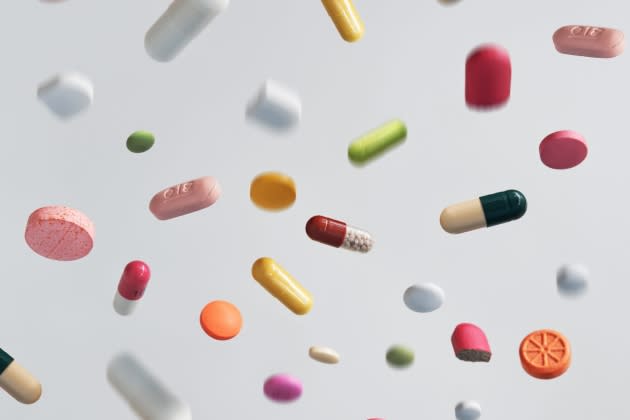
With the supplement market booming, an increasing number of beauty brands are looking to get in on the action.
Vitamins, minerals and supplements have seen an uptick in sales following the COVID-19 pandemic. In 2022, the U.S. market was estimated at $36 billion and is expected to grow to around $45 billion by 2027, according to Mintel.
More from WWD
“The willingness to take vitamins went up pretty substantially,” said Olivia Tong, an analyst at Raymond James. “The next thing that is particularly favorable for the category is this idea of self care…it has grown as a mega trend.”
The growth has been driven by benefit-focused products, with consumers less interested in the traditional multivitamin, reported Mintel. Instead, they are on the hunt for solutions that cater to specific needs, from sleep to stronger hair and nails to microbiome support.
Those figures haven’t gone unnoticed by beauty companies such as Unilever, Neutrogena, BeautyPie, Codex Labs, Jupiter, Monday Haircare, Act + Acre and Caliray, all of whom are looking to penetrate the category.
And their timing may be right. While once consumers were wary of ingestibles marketed by brands better known for manufacturing topical products, research shows attitudes are changing. According to an online U.S. survey of 2,172 female shoppers from The Benchmarking Company, 76 percent of participants expect beauty brands to offer supplements to complement their topical offerings and 77 percent trust beauty brands to create a safe, efficacious ingestible.
“We are very much in this transitional period where people are starting to understand the connection between beauty/feeling beautiful and overall wellness, so they’re reconsidering what types of products can deliver on their wellness needs and looking for products and services that meet those needs in new and perhaps nontraditional places,” said Cindy Deily, vice president of merchandising, skin care at Sephora.
Sephora has carried ingestibles for decades but has expanded its offerings over the last two years. Likewise, Ulta Beauty tested the waters early on, and now has a pillar focused on the “beauty from within” category with options from both traditional vitamin and beauty-first brands.
Vitamin retailers, too, see the opportunity for beauty-focused offerings. “We do have a holistic approach but definitely hair, skin and nails is usually the entry point because that’s part of beauty. All our collagen skus are best sellers, no matter what the brand is. There’s been much more of a proliferation of that kind of product,” said Muriel Gonzalez, chief merchandising and marketing officer at The Vitamin Shoppe.
GNC has clocked significant growth within the skin care category specifically, and expects new trends to emerge this year, including hair-oriented products, said Gwynne Maiorana, director of merchandising for weight management, herbs and greens, and health and beauty.
While topical-first beauty brands have historically struggled to find success in the ingestibles space, brands like Hum, Olly, Nutrafol, Murad and Moon Juice have paved the way for the “beauty from within” category in retail, say analysts.
The key to unlocking the category has been an emphasis on science, analysts say, who point to Nutrafol — which was said to have sales of $175 million in 2021 — as a prime example. The brand, which recently launched at Sephora and recently launched topical products, quickly gained traction for its clinically tested hair growth nutraceuticals, with 10.7 million views on videos tagged #Nutrafol on TikTok.
Mintel research shows that 20 percent of adults don’t trust ingredient and product claims unless they are backed by science, and 44 percent trust brands that showcase efficacy through clinical trials. For topical-first beauty brands entering the ingestible space, proven efficacy will be necessary — and even a prerequisite to success — to get consumers to listen and compete with traditional vitamin brands.
“The successful [beauty] companies in this are going to have to walk a very fine line so they don’t just appear as, ‘Oh we’re a beauty brand so of course we have an ingestible for better skin,’ because they don’t come from that credibility, whereas a vitamin company does come from that credibility,” said Wendy Liebmann, chief executive officer of WSL Strategic Retail. “Beauty brands that do have a health position and have always come from that medical/derm/health-side of things may have a stronger opportunity for success.”
Indeed, several beauty brands are attempting to become big players. Murad, for one, has had ingestibles since its founding and recently updated its line with new formulas and easy-to-swallow gel capsules.
Neutrogena, meanwhile, took a personalized approach, combining its Skin360 assessment with Nourished’s custom gummy vitamins. “Our algorithm uses 100,000 skin pixels and compares it to a database of over 10,000 images, which has a very diverse set of images with all skin types, skin tones and skin ages and then assesses 2,000 facial attributes to provide a Skin360 score,” said Neutrogena’s director of marketing for the future of skin health team, Desiree Dowe. With the customer’s score and overall skin goals, the Nourished team will then develop a customized gummy that can be delivered on a subscription model.
Caliray and Beauty Pie, on the other hand, both opted for beauty-boosting drinks — one of many non-capsule formats that are gaining traction. Caliray partnered with supplement company Thorne to develop its Get Lit Beauty Boosting Supplement, $48, which industry sources expect to do just under $1 million in retail sales during its first year on the market. The supplement contains vitamin D3, biotin, nicotinamide riboside and lutein to promote healthier-looking skin and boost mood.
The product’s dissolvable, yet compact format is what makes it unique. “To get the same level of nutrition in that little disc, you’d have to eat a gummy the size of a baseball,” said Caliray founder Wende Zomnir.
Beauty Pie’s new Green Me Up Superfood Powder, $100, is the latest addition to its growing ingestible portfolio. To compete with other powders on the market, the brand focused on creating an appetizing apple flavor and adding additional ingredients like bioflavonoids to prevent inflammation, mushrooms to boost immunity and microbiotics to support a healthy gut.
According to Beauty Pie founder Marcia Kilgore, the brand posted a 70 percent growth within the supplement category between 2021 and 2022.
Within beauty, hair health is a growing concern amongst consumers. According to New York University’s Langone Medical Center, more than 80 percent of men and almost 50 percent of women are subject to hair loss in their lifetime, an issue that’s been exacerbated by COVID-19. Many have reported experiencing increased hair shedding (albeit, most often temporary) following infection, and a number of scientific journals, including Journal of Medicine and Life, have confirmed a correlation between the two in certain instances. Gen Z and Millennial consumers have become increasingly engaged with conversations around preventative hair loss, as videos tagged #HairLoss on TikTok have garnered more than 5 billion views.
In 2020, Act + Acre launched its Plant Based Hair Capsules, $52, to improve scalp health and promote hair growth, resilience and thickness, prompted by cofounder Helen Reavey’s own encounter with COVID-19-induced hair loss. The supplement, which is formulated with bamboo and horsetail extract, can promote stronger nails in four weeks and new hair growth in eight to 12 weeks, the brand said. To date, the capsules have an 80 percent retention rate amongst consumers. The brand tapped an ingestible parent company, who was an early investor, to introduce them to the category.
However, moving into the supplement space required a new level of education to attract consumers. “It’s different to topical where you can see [results] instantly, but with vitamins it’s a much longer process,” Reavey said. “Consumers definitely want to understand the science behind it, more testing panels, have real results with pictures, as opposed to topical products, where people are more willing to just try it for the first time.”
Jupiter, a dandruff-focused hair care brand, entered the supplement game with its dandruff and dryness-combatting Daily Scalp Essential, $40, last December. The supplement, which is expected to do $1 million in sales its first year according to industry sources, is formulated with biotin, zinc, turmeric root, ashwagandha root and aminos to address dry, flaky scalps and thinning or brittle strands.
The brand focused on creating an enjoyable consumer experience with its easy-to-swallow gel capsules to compete with other options on the market and make it easy for consumers to stay compliant. “You have to have a good experience using it, so it was important for us to ensure that it was an easy product for people to use,” said Jupiter cofounder Ross Goodhart.
With so many new entrants to the market and beauty retailers playing in the space, it can be overwhelming for consumers to shop. “The challenge is complexity and choice. What retailers can do today is simplify that with curation and information,” Liebmann said.
In an effort to mitigate confusion, retailers have put an emphasis on education with ingredient transparency at the forefront. For example, Sephora requires supplement brands to meet specific Clean at Sephora criteria (outlined on the retailer’s website), including FDA compliance and ensuring bioavailability for maximum nutrient absorption.
“We work closely with our supplements/ingestibles brands to optimize storytelling so that clients can shop for their supplements the same way they are shopping for their skin care, with a focus on encouraging transparency around hero ingredients and/or key benefits,” Deily said.
For Ulta Beauty, it’s all about engaging with the consumer to understand what types of supplements they are gravitating toward. “We have offers in hair, skin, vaginal and gut health,” said Penny Coy, vice president of merchandising. “As we continue to listen to our guests, stress management and menopausal care have also come to the forefront, as that Millennial and Gen Z guest is aging.”
From the Inside Out
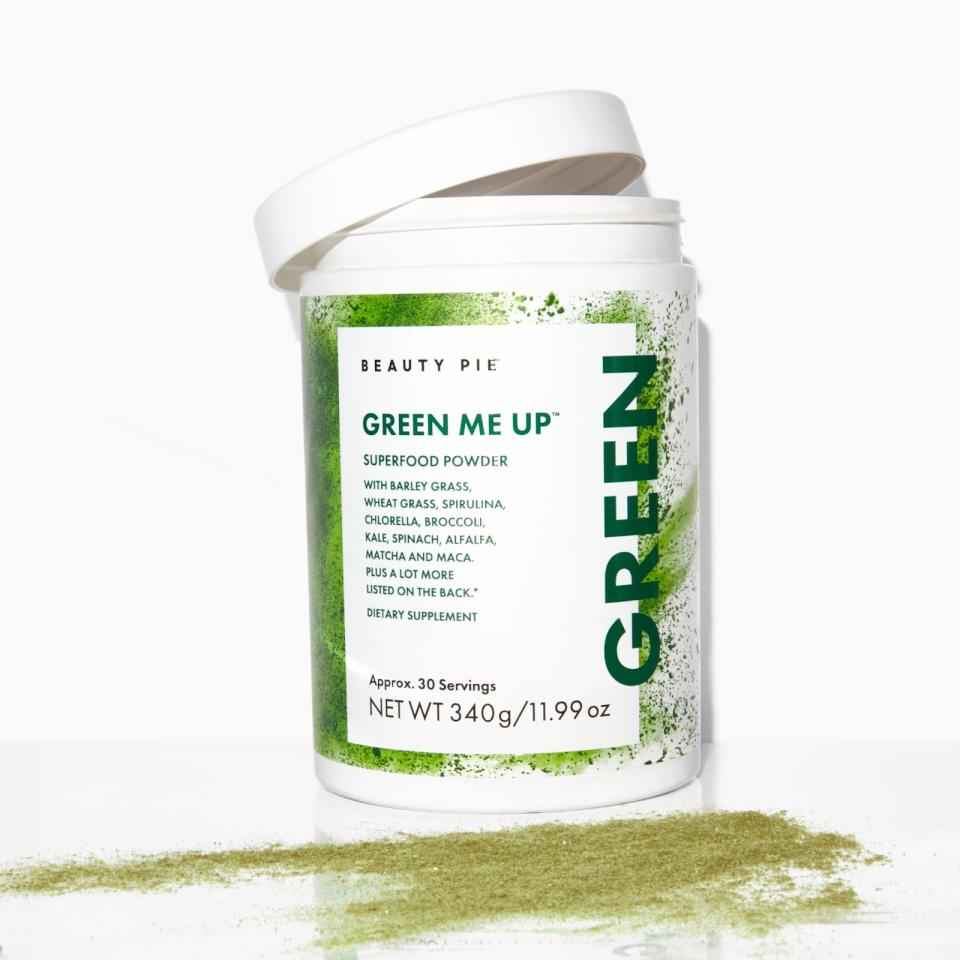
Beauty Pie Green Me Up Superfood Powder, $100
The direct-to-consumer brand’s newest supplement packs 33 superfoods, botanicals, mushrooms, beta glucans and probiotics into a apple-flavored powder that can be mixed into any liquid to support immunity and beauty from within.
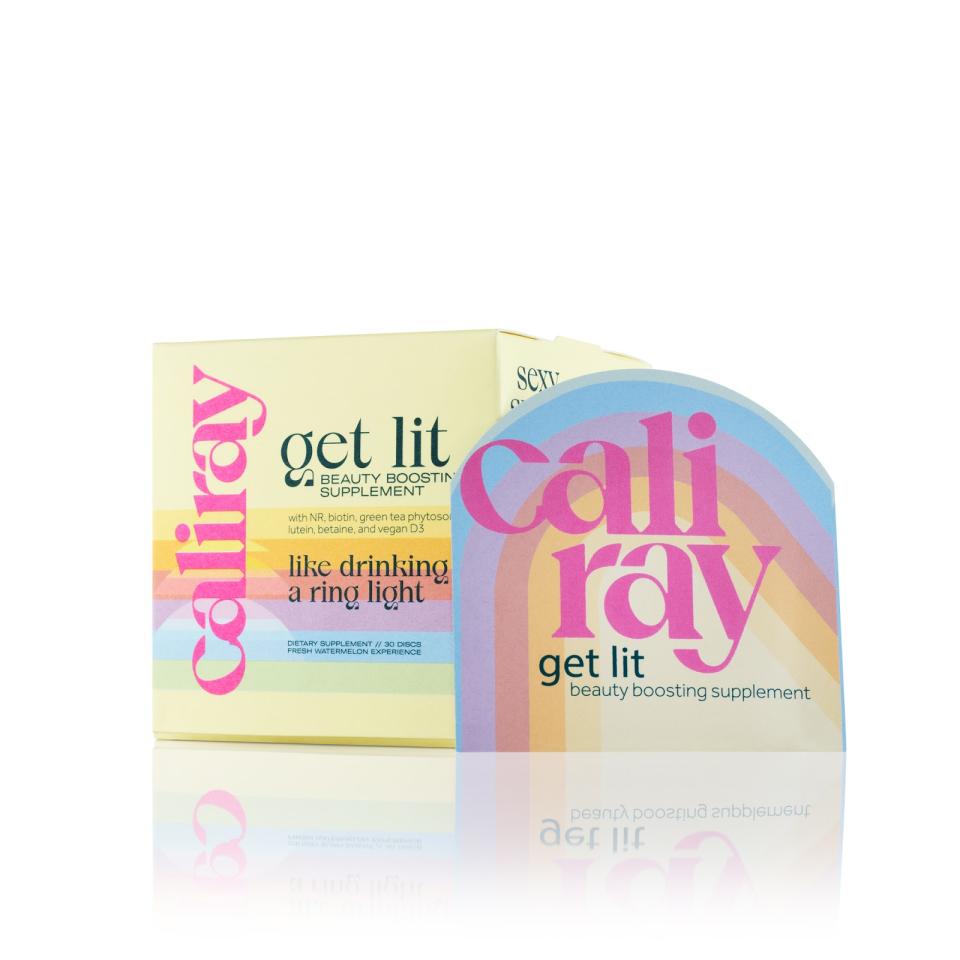
Caliray Get Lit Beauty Boosting Supplement, $48
Caliray partnered with supplement brand Thorne to create this watermelon-flavored, dissolvable disc that claims to promote glowy skin, protect from blue light, boost immunity, support mood and improve texture.
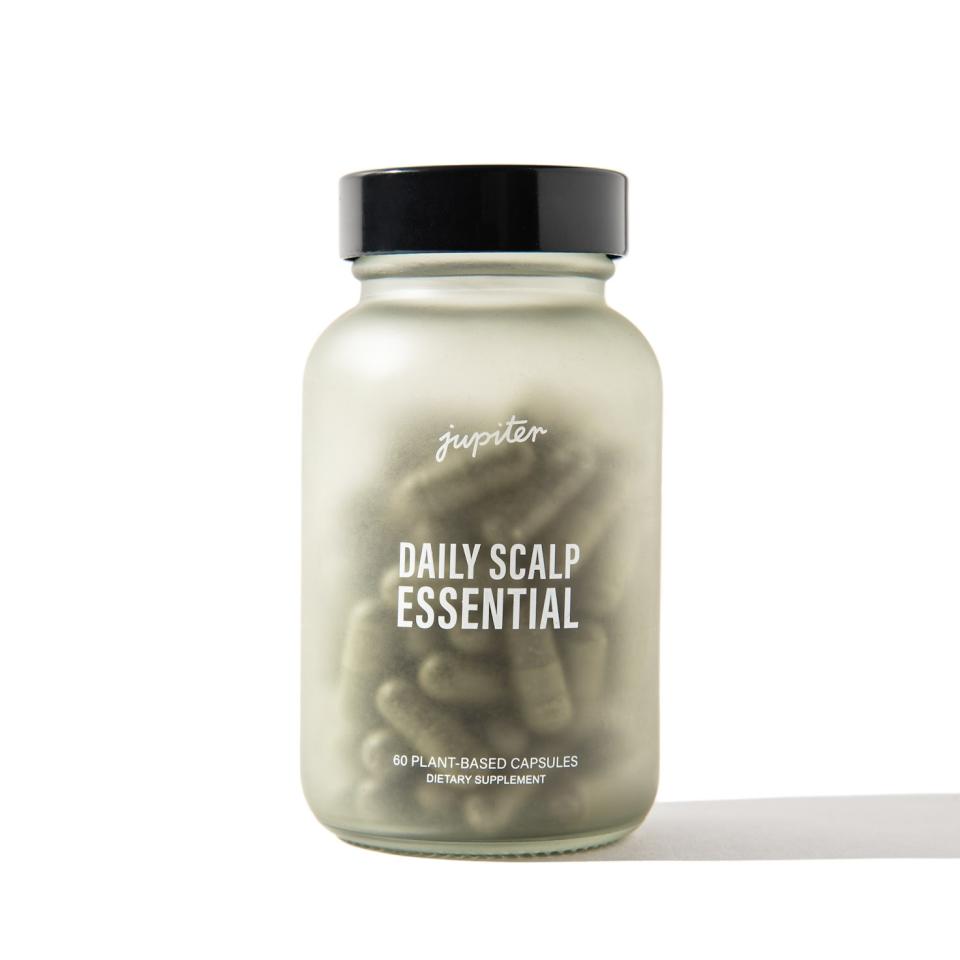
Jupiter Daily Scalp Essential, $40
Each capsule contains moisturizing vitamins to address dry scalp; adaptogenic mushrooms to reduce signs of oxidative stress, and biotin, zinc and aminos to promote longer, healthier strands.
Monday Haircare Hair Gummies, $13.99
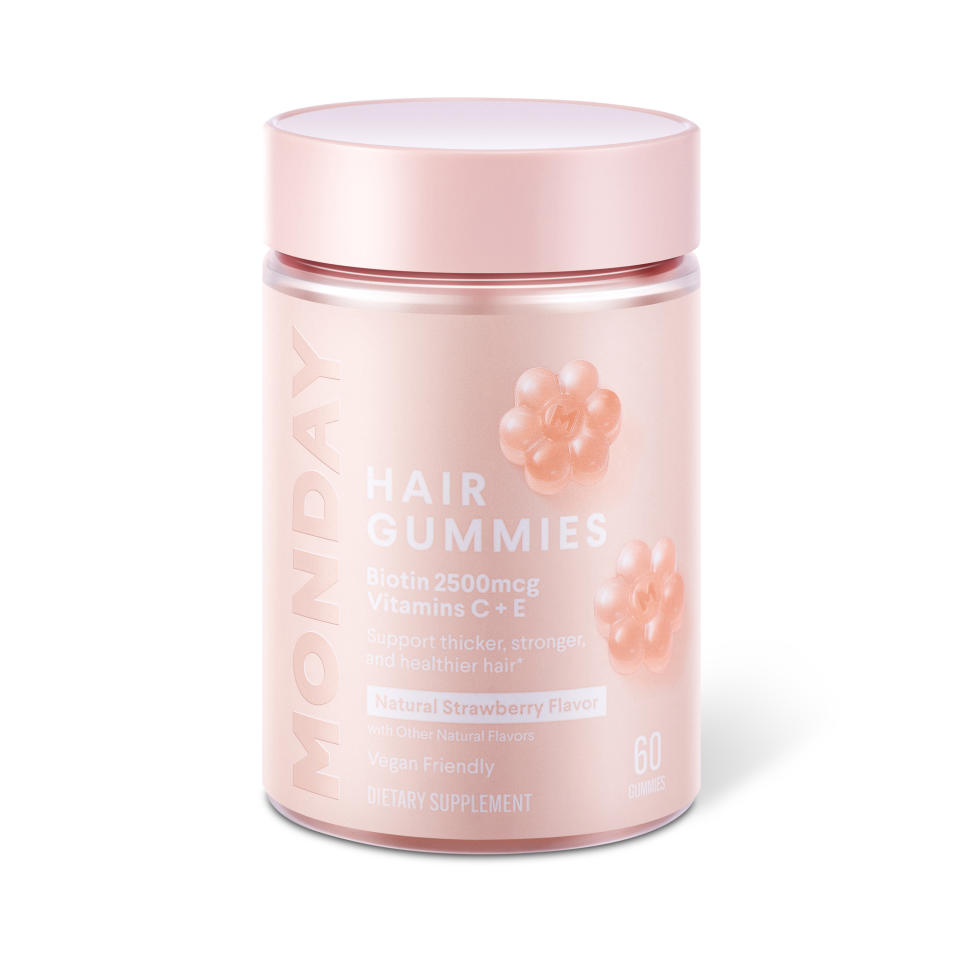
Monday Haircare’s strawberry-flavored Hair Gummies employ 2,500 mcg of biotin, as well as vitamins C and E, to promote thicker, stronger, healthier hair.
SkinStacks by Nourished in partnership with Neutrogena, $49.99
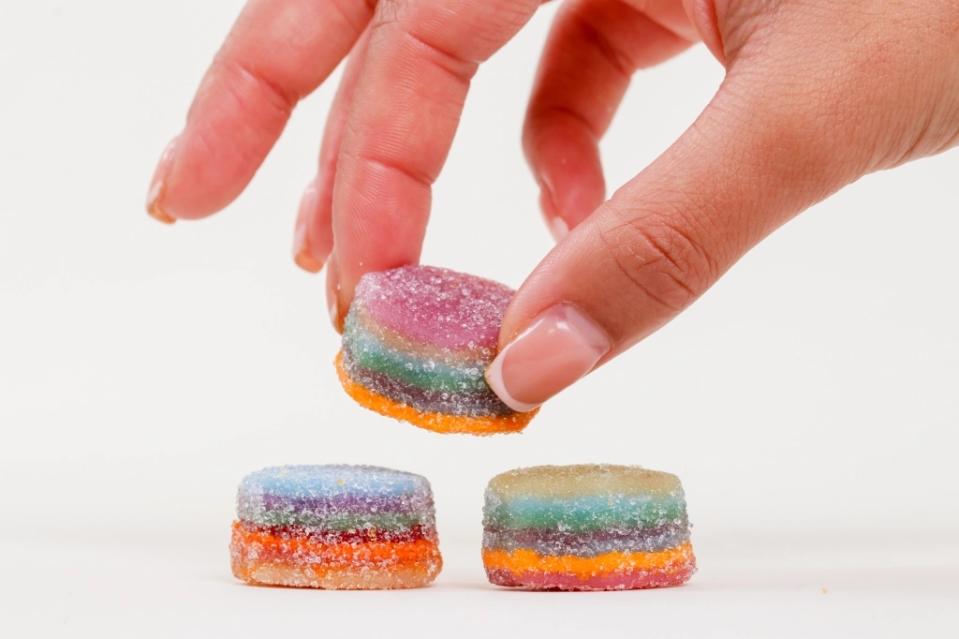
Using Neutrogena’s Skin360 technology and Nourished’s 3D gummy printing capabilities, the two brands have partnered to create customizable skin supplements.
Codex Labs Shaant Clear Skin Probiotic Supplement, $45
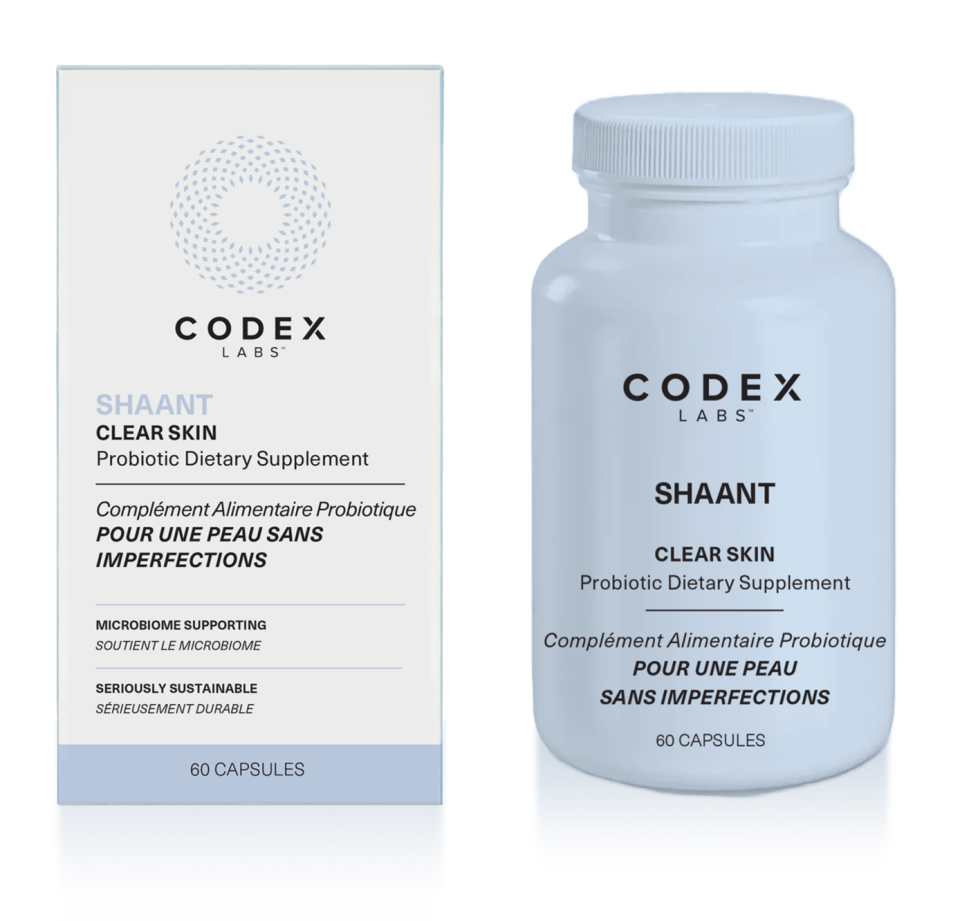
Codex Labs’ new supplement combines probiotics and plant-based actives to reduce acne lesions.

